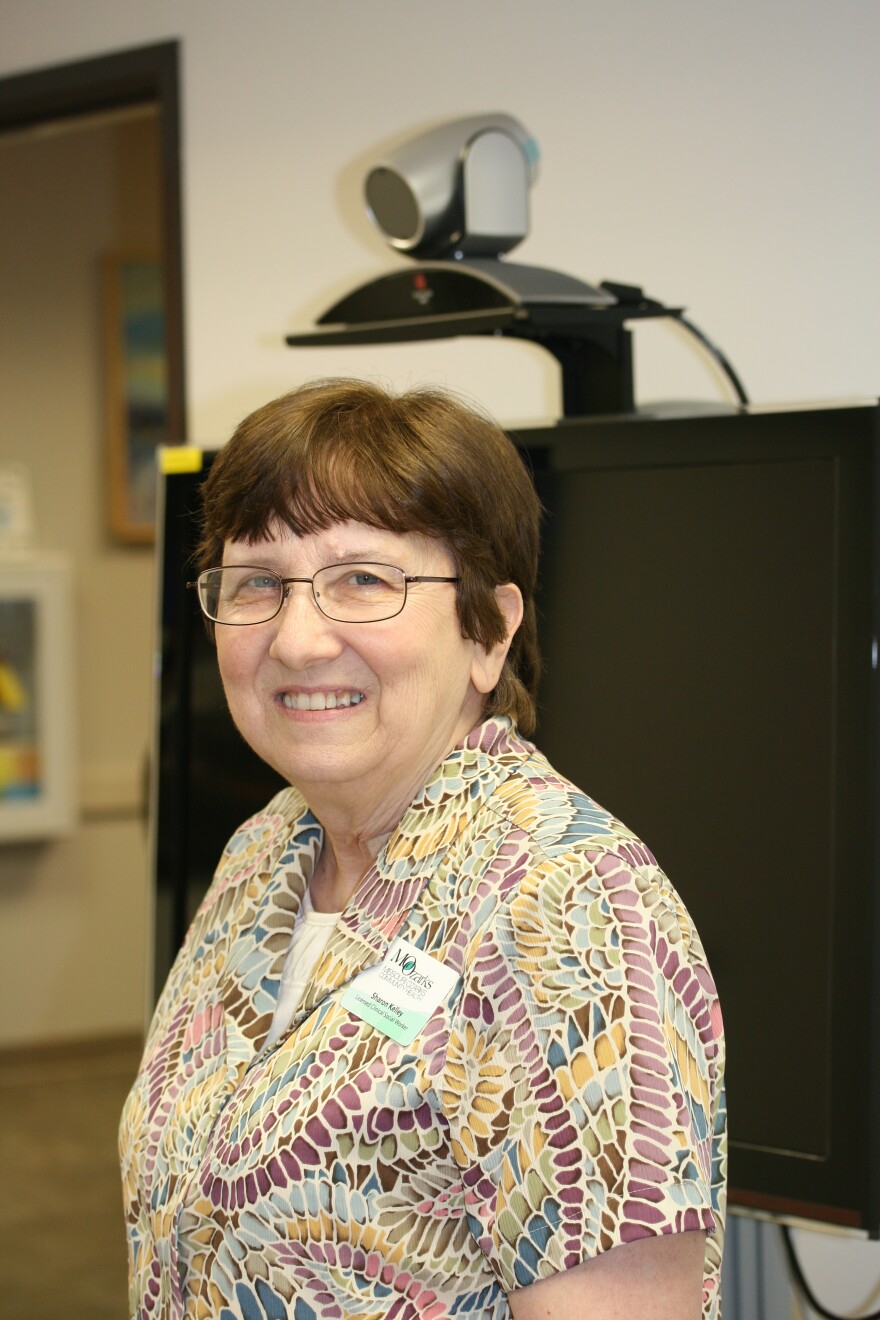Elementary school kids form a line behind their teacher as they prepare to tour the House chamber in the Missouri Capitol building.
Statistically, about one in every nine of these kids will have a major depressive episode between the ages of 12 and 17, according to the Missouri Department of Mental Health.
State lawmakers, who draft laws that regulate and fund many mental health programs, just wrapped up their 2017 session.
More than half of Missouri’s counties don’t have a licensed psychiatrist, and nearly half don’t have a licensed psychologist.
Representative Tila Hubrecht, R-Dexter, sponsored HB 165, which focused on Advance Practice Registered Nurses who are specifically trained in a given area like mental health.
“Well right now, an APRN has a mileage restriction, or a geographic barrier, that they have to be within a certain, specified area of whoever their collaborating physician is, or psychiatrist," Hubrech said.
Her bill would have allowed APRNs to travel farther and use telehealth more. Telehealth connects patients and providers by internet video. But Hubrecht’s bill failed to make it through the General Assembly.

HB 121, sponsored by Representative Keith Frederick, R-Rolla, would have made psychiatrists among those doctors eligible for a student loan repayment program.
That bill also failed. Frederick, who chairs the House Health and Mental Health Policy Committee, declined our multiple requests for an interview for this series.
A bill that did pass, SB 501, will ease the licensing requirements for psychologists.
Many clinics and hospitals are firing up their webcams and TV monitors to bring in professionals from afar through telehealth.
One such clinic is in Ava, Missouri, at Missouri Ozarks Community Health.
Sharon Kelley, a licensed clinical social worker there, says the psychiatrist joining by video is only available once a month, but even that helps in more complicated mental health cases.
She's responsible for setting up the technology and briefing the psychiatrist who is beaming in.
“And then, one of the nursing staff will get the patient just like they’re going to have a medical appointment. They’ll do their vital signs and get that all into the computer. The psychiatrist will have access to the patient’s chart,” Kelley said.
Dr. Mike Neitzel, deputy director of the Missouri Department of Mental Health, says telehealth is a good start in addressing the shortage—but that in the long term, Missouri needs to graduate more psychiatrists, psychologists and other mental health workers.
“The Department of Mental Health has developed a proposal called ‘Caring for Missourians' Mental Health.’ And it would be an investment between 12 and 13 million dollars total that would support additional mental health professionals in our existing training programs,” Neitzel said.
The state legislature approved $1.8 million to go toward these efforts for the next fiscal year.
Neitzel says one idea is to pay tuition for students entering those programs—in exchange for them taking a job in a needed area once they graduate. Or to repay their student loans, again, if they agree to practice in an underserved area.
He has a map that identifies which Missouri counties are without a psychiatrist.
“For example, if I look at the adjoining counties to Howell: Shannon, Texas, Wright, Webster, Douglas and Ozark, not a single one.”
Oregon County, he says, is the only adjacent county to Howell County that has a psychiatrist, according to the data.

One of the those psychiatrists in Howell County is Dr. Jesse Rhoads, who directs Behavioral Health Care at Ozarks Medical Center in West Plains.
"We’re in more of a critical shortage than the rest of Missouri, and by far than what is recommended,” Rhoads said.
He only ended up here because the federal government’s National Health Service Corps paid for part of his medical school in return for him working in an underserved area. He basically chose West Plains off of a list.
“When I came here, my plan was to fulfill my three year obligation, leave the area, go back to Ohio State or Dartmouth and be a researcher. Because I wanted to solve big problems. But then once I got here, I saw a big problem. And so I can’t leave, and it’s rewarding," Rhoads said.
Rhoads and his coworkers have 4,500 patients, drawing from a seven county area. The month before our interview, his office saw 250 new patients.
The American Academy of Child and Adolescent Psychiatry recommends one child psychiatrist for, roughly, every 2,000 kids, Rhoads said. But Behavioral Health Care in West Plains serves a population greater than ten times those recommendations.




